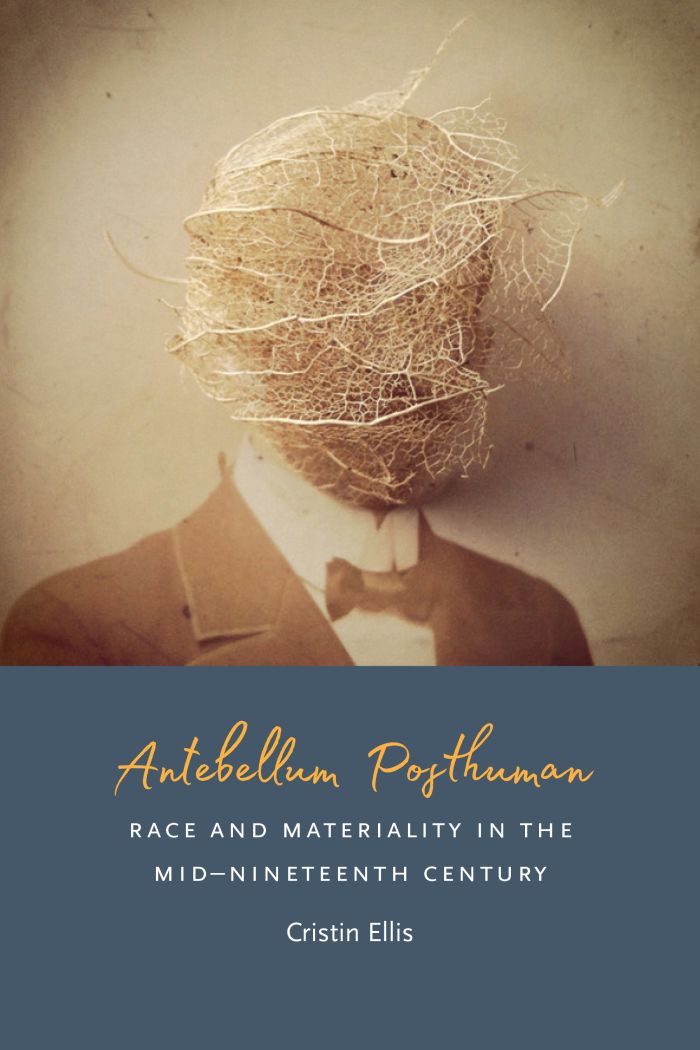Antebellum Posthuman
Race and Materiality in the Mid-Nineteenth Century

This book can be opened with

From the eighteenth-century abolitionist motto “Am I Not a Man and a Brother?” to the Civil Rights-era declaration “I AM a Man,” antiracism has engaged in a struggle for the recognition of black humanity. It has done so, however, even as the very definition of the human has been called into question by the biological sciences. While this conflict between liberal humanism and biological materialism animates debates in posthumanism and critical race studies today, Antebellum Posthuman argues that it first emerged as a key question in the antebellum era.
In a moment in which the authority of science was increasingly invoked to defend slavery and other racist policies, abolitionist arguments underwent a profound shift, producing a new, materialist strain of antislavery. Engaging the works of Douglass, Thoreau, and Whitman, and Dickinson, Cristin Ellis identifies and traces the emergence of an antislavery materialism in mid-nineteenth century American literature, placing race at the center of the history of posthumanist thought. Turning to contemporary debates now unfolding between posthumanist and critical race theorists, Ellis demonstrates how this antebellum posthumanism highlights the difficulty of reconciling materialist ontologies of the human with the project of social justice.
Antebellum Posthuman is a thought-provoking and timely contribution to the recent explosion of work on the desirability of moving beyond the 'human' as analytic framework or political horizon. Ellis’s consideration of Douglass, Thoreau, and Whitman uncovers posthumanism’s Romantic unconscious, challenging the contemporary faith in political progressiveness of the posthuman turn. Arguing for a renewed engagement with matter, Antebellum Posthuman persuasively models a close critical attentiveness that does not assume in advance what the outcome of that engagement will be.—Dana Luciano, Georgetown University
Antebellum Posthuman revisits classic works of the American nineteenth century, but finds original and compelling ways to understand their dialogue with contemporary critical and political demands.—Paul Downes, Nineteenth-Century Literature
Can posthumanism develop an effective antiracist politics? This is the stirring question at the heart of Cristin Ellis’s Antebellum Posthuman. Her exceptionally well-written and cogently argued book ultimately answers that it cannot. Intriguingly, Ellis offers her skepticism about the political potential of the posthumanist world view in the spirit of strengthening, rather than undercutting, posthumanism’s reach... Above all, Antebellum Posthuman is beautifully written, both lyrical and commandingly precise.—African American Review
Antebellum Posthuman... speaks with special force to our own illiberal moment... Alternating between the aporias that structure theories of race and those that structure theories of materiality in the present moment, Ellis demonstrates that the two can and must speak to each other.—Christopher Breu, American Literature
Clearly written, subtly argued, and offering a model of rigorous yet open and generous critique, Antebellum Posthuman explores antebellum antislavery literature’s contestation not only of who ought to be included in humanity but also of the meaning of “the human” as such.—Jishnu Guha-Majumdar, Qui Parle
Introduction. Beyond Recognition: The Problem of Antebellum Embodiment
1. Animal: Racial Science and the Problem of Human Equality
2. Vegetable: Evolution and the Problem of Human Agency
3. Cosmos: Bioelectricity and the Problem of Human Meaning
4. Posthumanism and the Problem of Social Justice (Race and Materiality in the Twenty-first Century)
Coda. After Romantic Posthumanism
Notes
Works Cited
Index
Please click the link below to download the Open Access version of this book.
- Antebellum Posthuman - epub

